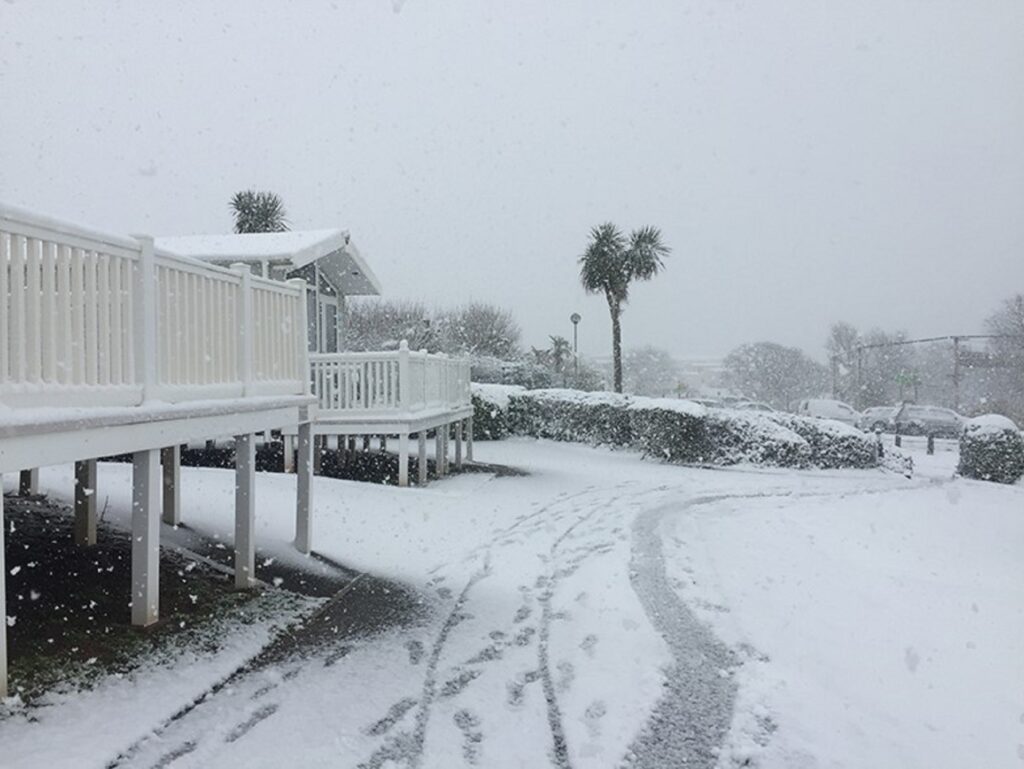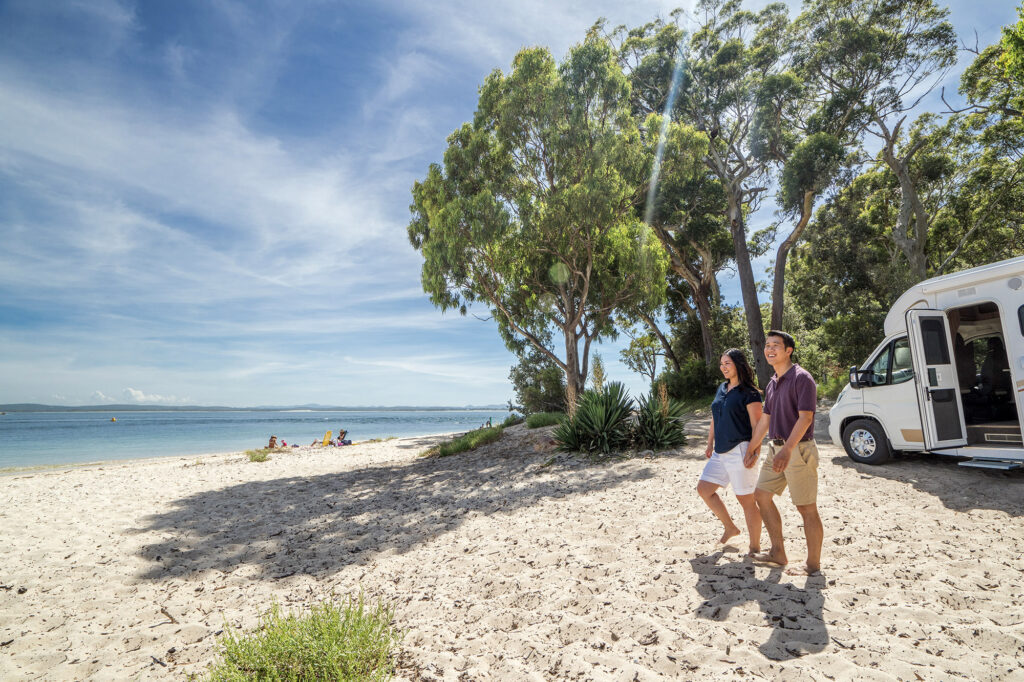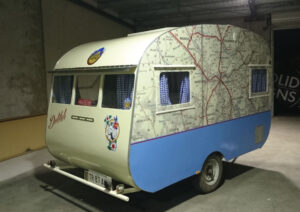Introduction
Brief overview of the importance of antifreeze in static caravans:
Antifreeze for static caravans is a crucial component that ensures the longevity and functionality of the caravan’s internal systems. Given the stationary nature of static caravans, they are often exposed to varying weather conditions, making them susceptible to freezing temperatures. This can lead to significant damage if not addressed promptly.
The role of antifreeze in maintaining the caravan’s plumbing and heating systems:
The primary role of static caravan antifreeze is to prevent the water inside the plumbing and heating systems from freezing. When water freezes, it expands, which can lead to burst pipes and damage to the caravan’s infrastructure. Additionally, antifreeze for static caravans also plays a role in preventing corrosion within the systems, ensuring that the static caravan central heating system antifreeze maintains optimal performance throughout its lifespan.
Understanding Static Caravans
Brief history and popularity of static caravans:
Static caravans have been a popular choice for holiday accommodations and permanent residences for decades. Their history dates back to the early 20th century when they were introduced as an affordable and mobile housing solution. Over the years, their design and functionality have evolved, but their appeal remains consistent, especially for those seeking a compact and comfortable living space.
The difference between static caravans and other types of caravans or RVs:
Unlike touring caravans or RVs, static caravans are designed to remain in one place for extended periods. This stationary nature means they require specific maintenance practices, including the use of static caravan antifreeze. While touring caravans might be moved frequently and can sometimes avoid extreme cold, static caravans are exposed to the elements year-round, making antifreeze an essential component for their upkeep.
Why Use Antifreeze in Static Caravans?
The risks of not using antifreeze: potential damage and costs:
Neglecting the use of antifreeze for static caravans can lead to catastrophic consequences. As temperatures drop, the risk of water freezing inside the caravan’s systems increases. This can result in burst pipes, damage to the heating system, and potential flooding. The subsequent repair costs can be substantial, not to mention the inconvenience and discomfort for the occupants.
Benefits of using antifreeze: protection against freezing, corrosion prevention, and system longevity:
Using static caravan antifreeze offers multiple benefits. Firstly, it provides a safeguard against the freezing of water within the systems, ensuring uninterrupted functionality. Additionally, quality antifreeze formulations also contain additives that prevent corrosion, enhancing the lifespan of the caravan’s plumbing and heating components. Overall, the use of static caravan central heating system antifreeze ensures the system’s longevity and efficient performance.

Types of Antifreeze
Ethylene glycol vs. propylene glycol: pros and cons:
Ethylene glycol is a common ingredient in many antifreeze formulations due to its effective freezing point depression properties. However, it is toxic and can be harmful if ingested or leaked into the environment. On the other hand, propylene glycol is considered safer for both humans and the environment, but it might be slightly less effective than ethylene glycol. When choosing antifreeze for static caravans, it’s essential to weigh these factors and decide based on safety, effectiveness, and environmental impact.
Organic acid technology (OAT) antifreeze, Hybrid organic acid technology (HOAT) antifreeze, and Inorganic acid technology (IAT) antifreeze:
These are the primary formulations of antifreeze available in the market. OAT antifreeze is long-lasting and offers excellent protection against corrosion but might not be compatible with some older systems. HOAT antifreeze combines the best of both OAT and IAT, providing extended protection and compatibility with a broader range of systems. IAT antifreeze, often found in older vehicles and systems, is typically green and needs to be replaced more frequently. When selecting static caravan antifreeze, understanding these formulations can guide the best choice for specific caravan systems.

Choosing the Right Antifreeze for Your Static Caravan
Factors to consider: climate, caravan age, and manufacturer’s recommendations:
The choice of static caravan antifreeze should be influenced by several factors. The local climate plays a significant role; areas with harsher winters may require a more potent antifreeze formulation. The age of the caravan is also crucial, as older systems might have specific compatibility requirements. Lastly, always consider the manufacturer’s recommendations, as they provide insights based on the caravan’s design and material specifications.
The importance of checking compatibility with your caravan’s materials:
Not all antifreeze formulations are suitable for every static caravan. Some might react with the materials used in the caravan’s plumbing or heating systems, leading to corrosion or degradation. Before introducing any static caravan central heating system antifreeze, it’s imperative to ensure its compatibility with the caravan’s materials. This step will prevent potential damage and ensure the longevity of the caravan’s internal systems.

Application and Maintenance
Step-by-step guide on how to apply antifreeze to a static caravan:
Applying antifreeze for static caravans is a straightforward process but requires attention to detail. Begin by draining the existing water from the caravan’s plumbing and heating systems to ensure no dilution occurs. Once drained, introduce the static caravan antifreeze into the system, ensuring it reaches all areas, including radiators, pipes, and water tanks. It’s essential to follow the manufacturer’s guidelines on the quantity and concentration required. After application, periodically check the system to ensure the antifreeze remains at the recommended levels.
Frequency of changing or topping up antifreeze:
The frequency of changing or topping up static caravan antifreeze depends on the type of antifreeze used and the conditions the caravan is exposed to. Generally, it’s advisable to check the antifreeze levels at the beginning and end of the colder seasons. For those using static caravan central heating system antifreeze, it’s essential to monitor the system’s performance and replace the antifreeze every 2-5 years, depending on the manufacturer’s recommendations and the antifreeze type.
Safety Precautions
Handling and storing antifreeze safely:
Antifreeze, especially those containing ethylene glycol, can be toxic. When handling static caravan antifreeze, always use gloves and avoid any skin contact. Store antifreeze containers in a cool, dry place, away from children and pets. Ensure the containers are tightly sealed to prevent any spills or evaporation. In case of any accidental spills, clean them immediately to avoid any potential hazards.
What to do in case of accidental ingestion or exposure:
If someone accidentally ingests or is exposed to static caravan antifreeze, it’s crucial to act quickly. For ingestion, do not induce vomiting; instead, seek medical attention immediately. If the antifreeze comes into contact with the skin, wash the area thoroughly with soap and water. In case of eye contact, rinse the eyes with plenty of water for at least 15 minutes and consult a medical professional. Always keep the antifreeze container label handy, as it contains vital information that can assist medical personnel.
Common Myths and Misconceptions
Debunking myths about antifreeze usage in static caravans:
There are several myths surrounding the use of antifreeze for static caravans. One common misconception is that antifreeze is only necessary in extremely cold climates. In reality, even mild freezing can cause damage to a caravan’s systems. Another myth is that all antifreeze types are interchangeable. However, using the wrong static caravan antifreeze can lead to system damage or reduced efficiency. It’s essential to research and understand the specific needs of your caravan before making any decisions.
Addressing common concerns and questions:
Many caravan owners have concerns about the environmental impact of antifreeze, especially given the toxic nature of some formulations. Fortunately, there are eco-friendly static caravan antifreeze options available that are biodegradable and less harmful. Another frequent question is about mixing different antifreeze types. It’s generally advised against, as it can reduce the effectiveness of the antifreeze and potentially harm the static caravan central heating system antifreeze components.

Conclusion
Summarizing the importance of choosing the right antifreeze:
Choosing the right antifreeze for static caravans is not just about preventing freezing; it’s about ensuring the longevity and optimal performance of the caravan’s systems. With the right static caravan antifreeze, owners can have peace of mind, knowing that their investment is protected against potential damages and costly repairs. It’s a small step that yields significant benefits in the long run.
Encouraging regular maintenance and checks for optimal caravan performance:
Regular maintenance, including periodic checks of the antifreeze levels and system performance, is crucial for any static caravan owner. By staying proactive and using the appropriate static caravan central heating system antifreeze, caravan owners can enjoy their homes without the constant worry of system failures or unexpected damages. After all, a well-maintained caravan is a happy caravan.
Frequently Asked Questions (FAQs)
Addressing common queries about antifreeze in static caravans:
Over time, several questions have become recurrent among static caravan owners. “How often should I change my static caravan antifreeze?” “Can I mix different antifreeze types?” “Is there an eco-friendly antifreeze option for my caravan?” Addressing these questions with accurate and concise answers can provide clarity and guidance for caravan owners, ensuring they make informed decisions regarding their antifreeze choices.
References and Further Reading
Providing sources, studies, and additional resources for readers who want to delve deeper:
For those interested in a deeper understanding of antifreeze for static caravans, it’s beneficial to provide a list of reputable sources, studies, and further reading materials. This not only bolsters the credibility of the article but also offers readers a chance to explore the topic further. Whether it’s scientific studies on antifreeze formulations or manufacturer guidelines on static caravan central heating system antifreeze, a well-curated list can be an invaluable resource for the curious reader.


